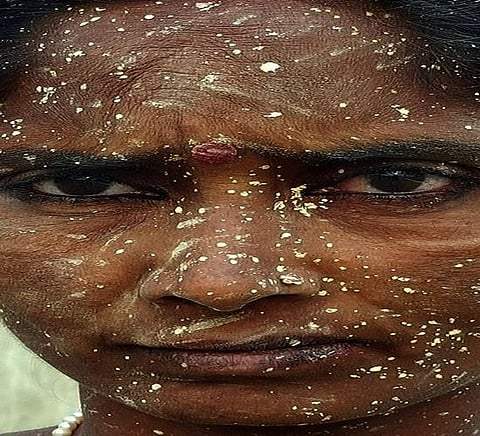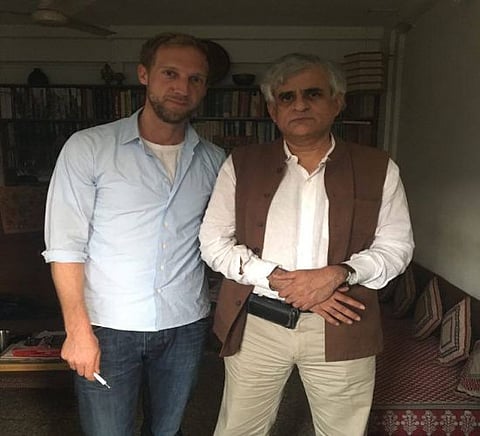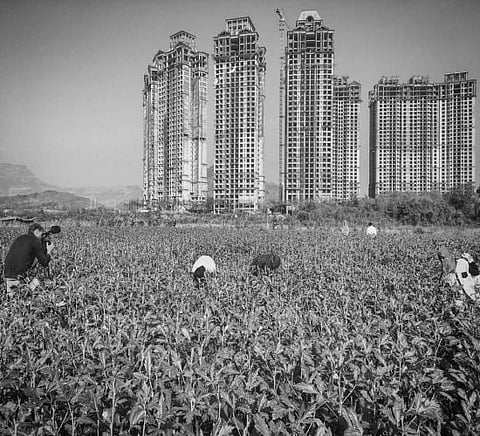Mathieu Roy, Montreal-based filmmaker, who has made films like Surviving Progress and Another House, has now made The Dispossessed, a three-hour long documentary on global agrarian crisis, talks to Outlook over a Skype chat about why he made the film and his experiences of filming in India, Switzerland and so on and if he sees any glimmer of hope in the struggles of farmers.
Not Only In India, Farmers Are Committing Suicides In US Too, Says Mathieu Roy, Whose Film Sheds Light On Agrarian Crisis
The Montreal-based filmmaker shares experience of filming The Dispossessed, a three-hour long documentary on global agrarian crisis.
How did you decide to make a detailed documentary on agrarian crisis?
A friend of mine was developing this project on micro-economic traps that limit farmers. Later I was offered the project and I took it up as a gift, as a challenge because it is such an important subject. Our vision was to make an impressionistic film, not formatted for television slots. This is the biggest human crisis that no one speaks about.

How did you choose your regions to highlight the plight of farmers and how long did it take to prepare and film?
We had suggestions of regions and countries that were particularly hit by the agrarian crisis such as Vidarbha in India. It was a journey of over four years and we travelled extensively in India, Democratic Republic of Congo, Malawi, Switzerland, Brazil and Canada. I met P Sainath few years ago and asked him if he could be in the film. It was a humbling experience to travel with journalist Jaideep Hardikar and hear the same stories again and again. It was extremely sad what we saw.

(Mathieu Roy with P Sainath)
I was surprised to see Switzerland, along with India and other developing countries.
Apart from the fact that it is a Canadian-Swiss production, it is also about the fate of the farmers is connected worldwide. Though the situation is much worse in developing countries, there is a piece in the newspaper Guardian about farmers committing suicides in the US.
Earlier developed countries had the same 2/3rd ratio of farmers to people as developing countries today. Over the years, it reduced to less than one per cent of the population. Even so the farmers are selling out and can’t make a living, that should indicate how grave the agrarian crisis is.
With farmers’ agitation intensifying by the day in India, do you believe that future will be better?
There is hope and spirit in the on-going struggles but I disagree with many; they are being naïve in their thinking that the governments will be on their side. Governments are now under complete corporate control and agro business is a huge thing, of which farming and farmers is only one part. It’s a huge monster with many heads. The only measures you will see will be electoral, rhetorical illusions and play on words. For example, you will not see them take money from agro businesses and give it t small organic farmers. The government is not our friend.

The corporation mentioned in the film exports a highly controversial product to India, which has been banned in many developed countries. In my second film on the same subject, we argue that the dishonest push to make farmers dependent destroyed their ability to recycle the seeds.
You have another film ready on the same subject?
Yes it is much shorter, titled “dispossession.” It has different people, different places. For example, Brazil is also hit by big corporations. Free trade has destroyed the local farmers who are left with no options. Also, in Punjab – the best irrigated land, the land of five rivers, we found some areas are extremely toxic. Some areas are radioactive. People hardly use protective gear. There are instances of cancer, birth defects in people.
In fact the collaborators have concluded that a complete reversal of the green revolution is required, like in Salvador. Many studies prove that small organic farmers can produce more if we help them with irrigation and natural/organic pesticides and fertilizers.
When are you releasing the first documentary, how is the response to the screenings held so far?
So far the response has been great with audience not only watching it but also staying back to discuss various issues. We release it in November in Montreal theatres and it has been selected for the Kerala film festival too. There are two challenges – distributors are not interested and the length is not television friendly. But I am very stubborn and perseverant. I will try and see that it reaches out to as many people as possible.